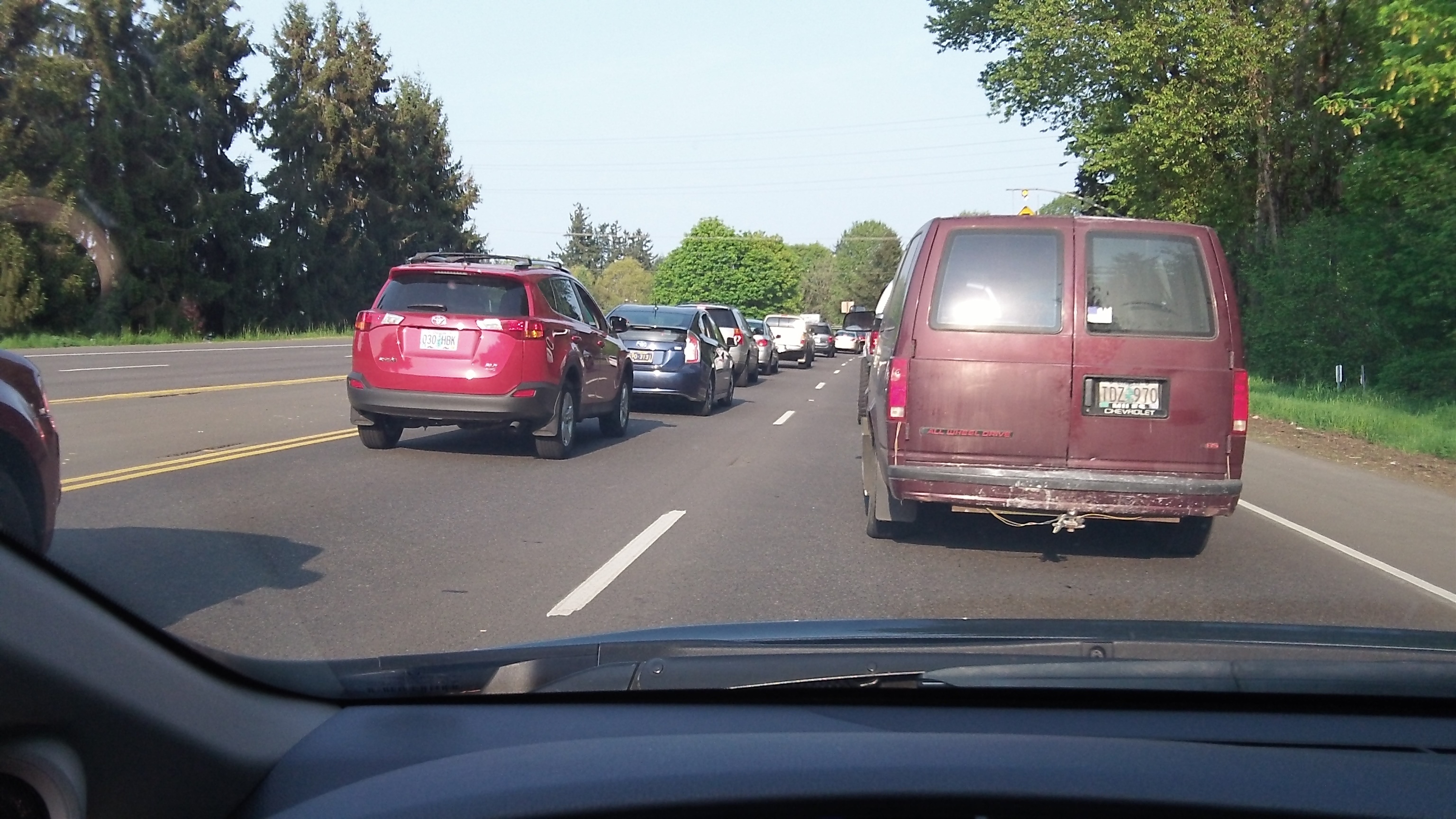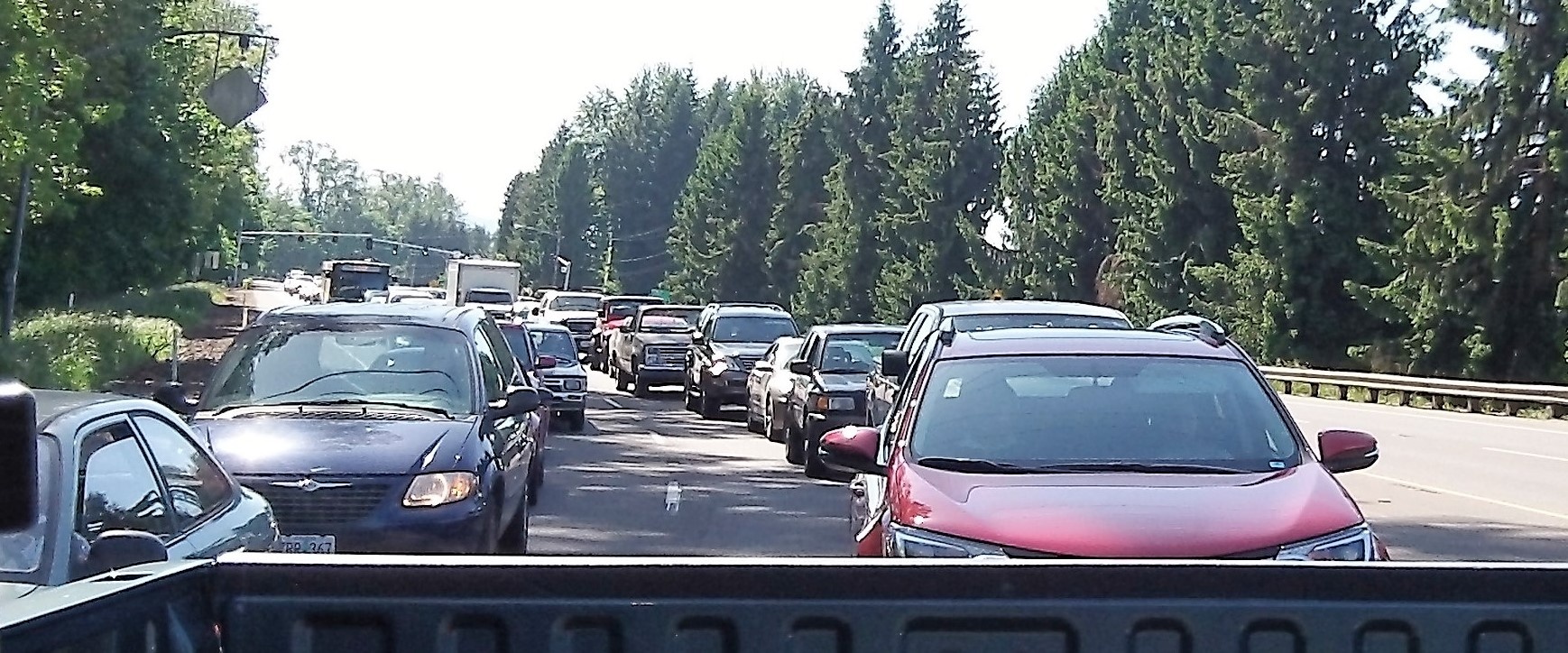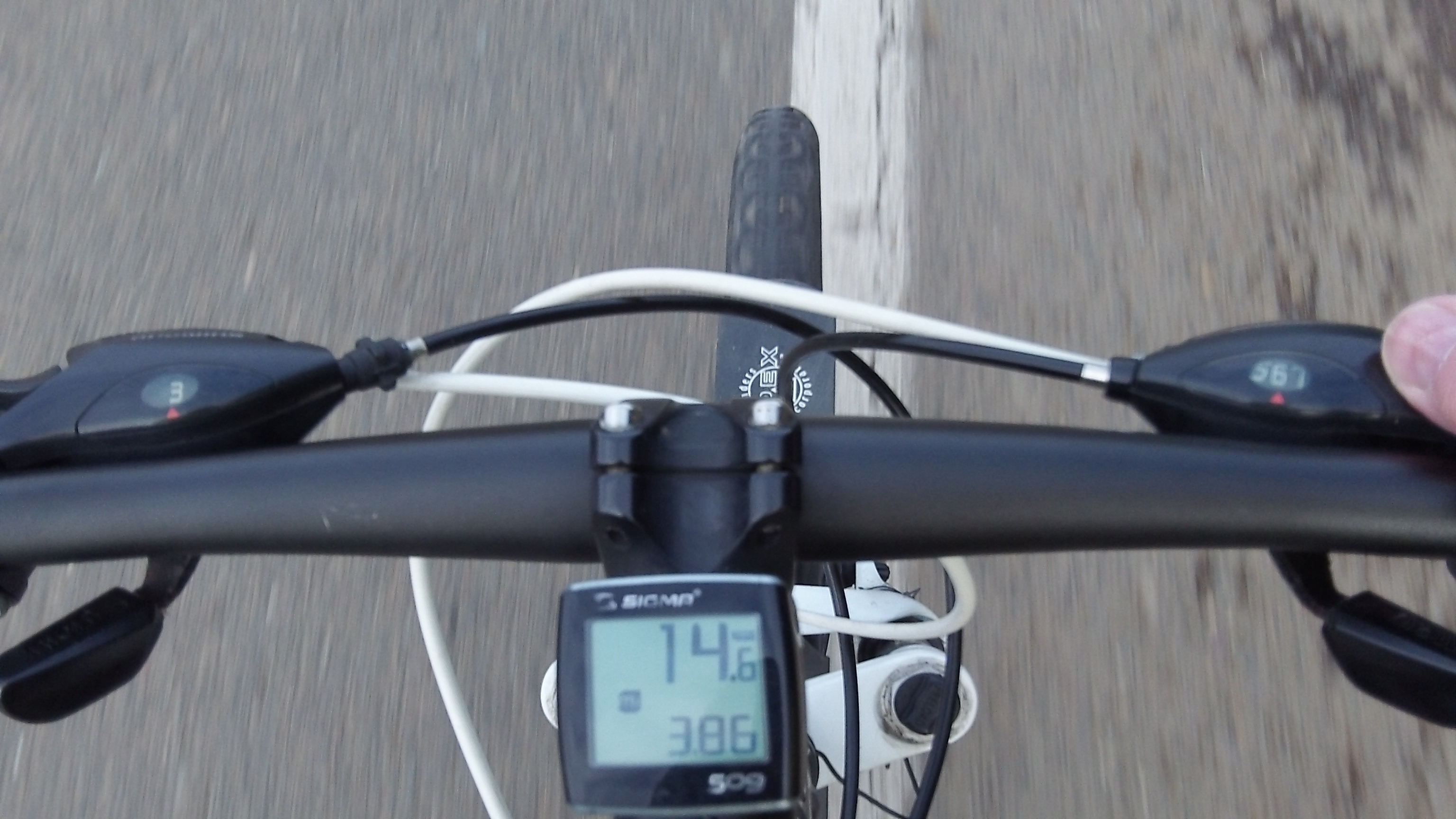Oregon’s low-key experiment with charging road users by the mile continues, and on Monday the fee goes up in order to keep up with the jump in the state gas tax.
Road-user-fee bill stalls in Salem
Written May 18th, 2017 by Hasso Hering
We road users have a sweet deal
Written January 8th, 2017 by Hasso Hering

If Oregon legislators propose an increase in the gas tax this year, as part of a package to keep up with the need for highway maintenance and construction, they won’t get any complaints from me. An accounting from OReGO showed me that I’m getting a really good deal, in my opinion, for using our roads.
OReGO update: Developing doubts
Written October 5th, 2016 by Hasso Hering

As one of the volunteers paying Oregon’s vehicle mileage tax — in theory anyway — I’m thinking the program is needlessly complicated as long as it applies to vehicles powered by conventional fuel. That’s because of all the record keeping necessary to calculate the tiny difference between the mileage tax and the fuel tax already paid.
OReGO: Some year the fun may stop
Written July 21st, 2016 by Hasso Hering
OReGO update: How about bikes?
Written March 17th, 2016 by Hasso Hering

Albany Albany City Council Albany council Albany downtown Albany housing Albany parks Albany Planning Commission Albany police Albany Post Office Albany Public Works Albany riverfront Albany Station Albany streets Albany traffic Albany urban renewal Amtrak apartments Benton County bicycling bike lanes Bowman Park Bryant Park CARA climate change COVID-19 Cox Creek Cox Creek path Crocker Lane cumberland church cycling Dave Clark Path DEQ downtown Albany Edgewater Village Ellsworth Street bridge Highway 20 homeless housing Interstate 5 land use Linn County Millersburg Monteith Riverpark North Albany North Albany Road ODOT Oregon legislature Pacific Boulevard Pacific Power Portland & Western Queen Avenue Queen Avenue crossing Railroads Republic Services Riverside Drive Santiam Canal Scott Lepman Talking Water Gardens Tom Cordier Union Pacific urban renewal Water Avenue Waterfront Project Waverly Lake Willamette River
Copyright 2024. All Rights Reserved. Hasso Hering.
Website Serviced by Santiam Communications




No carbon will mean mandatory mileage tax
Drivers in Albany and across Oregon are expected to all be tooling around in electric vehicles in about 30 years. The implication of that gets little discussion as the legislature prepares to pass its plan to force a near-elimination of fossil fuels and the emissions of greenhouse gas.
Tags: carbon reduction, HB 2020, OreGo, road user charge